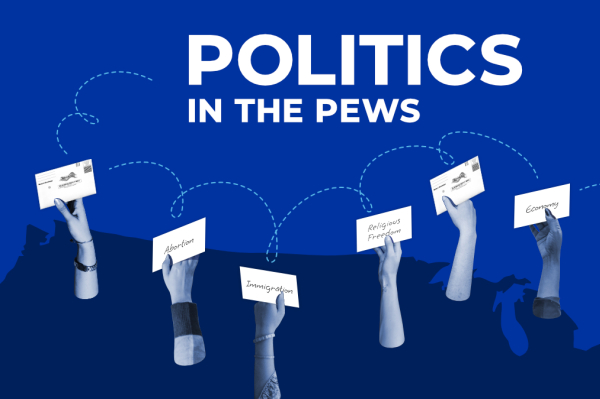When 'choice' and 'disability' collide: Eugenics still advancing

Nicole Lee is one of Australia’s leading disability-rights advocates. A spinal cord injury when she was young left Nicole Lee dependent on a wheelchair for mobility. But, as she revealed in a recent article at Quartz.com, accessibility and discrimination aren’t the only challenges women with disabilities face. One of the most daunting challenges, she says, is getting people who talk so loudly about the “right to choose” to actually respect their choices.
In the article, Lee describes her three pregnancies. At age 18, she had her first child. When she found herself pregnant again at 22, she decided to have an abortion, something she describes as a “difficult decision.” While she expected the people at the abortion clinic to agree with her, she also expected counseling and “to be… treated with empathy and concern.”
Instead, she writes, “no one blinked an eye. No counseling. No questions… no support was offered afterward.”
Looking back, she sees how differently she was treated compared to non-disabled women at the clinic. Because of her disability, people saw her decision to end her pregnancy as “unquestionably” the right decision.
If you think Lee is overreacting, the story of her third pregnancy proves otherwise. When sharing the news about the child in her womb, she was often asked, “How are you going to cope with being pregnant?” followed by “How are you going to take care of a newborn baby?” This, even though she was happily raising her first child.
Lee wants to know, “Why wasn’t I asked about my ability to cope after having an abortion? Why was no one concerned about my welfare then?”
At least part of the reason, she suspects, has to do with eugenics. There’s fear of passing on a genetic defect. There are doubts, as Lee put it, about “whether or not a disabled person can live ‘a good life.’” And remember, Lee’s disability was caused by an injury.
Her concerns are valid, and her experiences are not unique.
In Australia, as in other countries, forced sterilization of the disabled is not only legal, it is an ongoing practice. Between June 30, 2016 and June 30, 2017, at least ten disabled adults were sterilized in Australia’s Northern Territories. These sterilizations occurred at the request of their guardians, not the adults themselves.
A recent United Nation report expressed concern about “the non-consensual administration of contraceptives and abortions for, and sterilization of women with disabilities.” Their concerns included Australia.
Forced sterilization and other eugenics practices may seems like a throwback to a much darker period in recent human history, but in many countries, the laws that authorize these reprehensible violations of our humanity are still on the books. Even in America. Remember Buck v. Bell, in which Justice Oliver Wendell Holmes infamously declared that “three generations of imbeciles are enough”? If not, google it. You’ll discover it’s still the law of the land in the United States.
Lee’s account is compelling and shocking, but her explanation, still, misses something vital. The so-called “right to choose” and the disregard for the rights of those with disability come from the same ideological place. Both reject the sanctity and dignity of every human life, from the moment of conception to the moment of natural death. Both, to borrow the title from Edwin Black’s history of eugenics, are part of “the war against the weak.”
It should never surprise us when societies and movements already committed to abortion-on-demand advance trampling the rights of other vulnerable groups, whether at the beginning of life (as in Iceland, which has eliminated Down syndrome by eliminating all babies with Down syndrome) or at the end of life (as in the Netherlands, where dementia patients are euthanized against their will).
Once we divide human life into categories of “convenient” and “inconvenient,” anyone who falls into the latter category will be vulnerable.
Resources
"What Would You Say?" Video: Does a Poor Prenatal Diagnosis Justify Abortion?As a disabled woman, my abortion wasn’t questioned—but my pregnancy was, Nicole Lee, Quartz, September 18, 2019
The Two Bucks: The Nazi’s Victims and Our Own, Roberto Rivera, BreakPoint.org, October 22, 2019
Originally posted at BreakPoint.





















